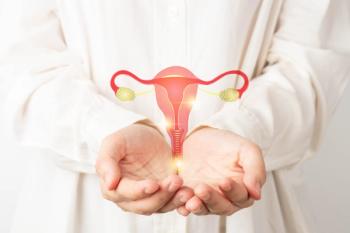
In a recent study, successful pregnancy termination was reported when performing medical abortion early vs delayed, with similar safety outcomes also observed.

In a recent study, successful pregnancy termination was reported when performing medical abortion early vs delayed, with similar safety outcomes also observed.

A study of over 1 million births in Quebec reveals that pregnant women with hidradenitis suppurativa face increased risks of pregnancy complications and long-term health issues for both themselves and their offspring.

Data has indicated adverse maternal and neonatal outcomes from placental conditions, alongside a high risk of recurrence in subsequent pregnancies.

In a recent study, menopausal women with frequent and time-consistent vasomotor symptoms were more likely to develop diabetes than those with reduced vasomotor symptoms.

In a recent study, offspring of women with cannabis use in early pregnancy confirmed by self-report or toxicology test were not at an increased risk of childhood early developmental delay up to the age of 5.5 years.

Rossella Nappi, MD, PhD, highlights how fezolinetant rapidly reduces the severity and frequency of hot flashes, offering a personalized, non-hormonal solution for menopausal women.

Discover how cutting-edge artificial intelligence technologies are enhancing early breast cancer detection, improving accuracy, and personalizing care for better patient outcomes.

Review some of the top stories from the Contemporary OB/GYN website over the last week, and catch up on anything you may have missed.

In a recent study, adjustments for maternal characteristics mediated the association between maternal prenatal cannabis use and offspring autism spectrum disorder, indicating no statistically significant increase in risk.

Women experiencing menopause later in life may face an increased risk of asthma, according to recent research highlighting the impact of hormone levels on respiratory health.

With nearly half of short-acting contraceptive users preferring non-traditional sources such as telehealth and over-the-counter options, a recent study highlights evolving patient needs in contraceptive access.

In a recent study, high rates of reproductive health service use were reported among adolescent mothers, indicating the benefits of this model for providing care when other options are unavailable.

In a recent study, non-Hispanic Black patients were less likely to receive guideline-concordant care and had greater mortality rates, highlighting the potential for improved survival by optimizing receipt of timely care.

Despite being recommended as a third-line therapy, rates of ondansetron use to treat nausea and vomiting in pregnancy have increased, making it the most common prescription antiemetic against this condition in the United States.

A recent study highlights the frequent occurrence of incidental findings on pelvic magnetic resonance imaging for endometriosis, emphasizing the need for radiologists to focus on those with higher clinical significance.

In a recent study, factors limiting Advanced Practice Providers in their scope of practice included employers, state restrictions, and insurance.

A recent study found that highly purified human menotropin significantly lowers the risk of ovarian hyperstimulation syndrome compared to recombinant follicle stimulating hormone, highlighting the benefits of protocol individualization based on gonadotropin type.

Review some of the top stories from the Contemporary OB/GYN website over the last week, and catch up on anything you may have missed.

In a recent study, Black patients were significantly more likely to present with high-risk endometrial subtypes for endometrial cancer, highlighting disparities in access to tumor next generation sequencing.

In a recent study, children ceonceived through assisted reproductive technology were slightly more likely to present with Beckwith-Wiedemann syndrome, Prader-Willi syndrome, or Silver-Russell syndrome.

In a recent study, the sensitivity and specificity of antimüllerian hormone were not adequate for use as a single diagnosis tool toward polycystic ovary syndrome.

In a recent study, similar preterm birth rates were reported between patients with endometriosis and those without endometriosis.

Recent research highlights a potential connection between dietary vitamin B6 intake and the development of endometriosis, suggesting a role for diet in managing the condition.

New data from SMSNA 2024 show transplant recipients face a 17% reduced risk of poor sexual function outcomes after procedure.

Ruth M Carrico, PhD, DNP, APRN, discusses the significance of the FLUBLOK vaccine's updated label, offering pregnant patients a safe and effective alternative for influenza prevention.

A recent study shows a significant decrease in primary cytoreductive surgery utilization for advanced ovarian cancer, as neoadjuvant chemotherapy followed by interval cytoreductive surgery gains acceptance for its noninferior survival outcomes and reduced postoperative morbidity.

Review some of the top stories from the Contemporary OB/GYN website over the last week, and catch up on anything you may have missed.

Following the Dobbs v. Jackson ruling, more women are opting for permanent and long-acting contraceptive methods, even in states where abortion access remains protected.

A recent study found that pregnant patients with multiple unscheduled hospital visits face an increased risk of severe maternal morbidity, emphasizing the need for integrated care responses.

In a recent study, female partners often experienced increased rates of invasive infertility procedures, despite high rates of male-factor infertility.